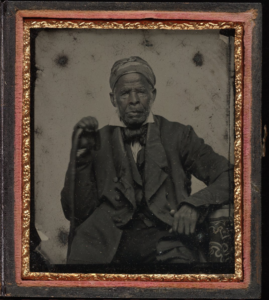
“The United States is a nation founded on both an ideal and a lie. Our Declaration of Independence, signed on July 4, 1776, proclaims that ‘all men are created equal’ and ‘endowed by their Creator with certain unalienable rights’. But the white men who drafted those words did not believe them to be true for the hundreds of thousands of black people in their midst. ‘Life, Liberty and the pursuit of Happiness’ did not apply to fully one-fifth of the country. Yet despite being violently denied the freedom and justice promised to all, black Americans believed fervently in the American creed. Through centuries of black resistance and protest, we have helped the country live up to its founding ideals.” Nikole Hannah Jones, creator of the 1619 Project
“Critical race theory, the 1619 Project and the crusade against American history is toxic propaganda, ideological poison that, if not removed, will dissolve the civic bonds that tie us together. “ Donald Trump
“The #1619Project is a powerful and necessary reckoning of our history. We cannot understand and address the problems of today without speaking truth about how we got here.” Kamala Harris
In August 2019, the New York Times Magazine published The 1619 Project issue to commemorate the 400th anniversary of the arrival of the first enslaved Africans to the British colonies in North America.
The 1619 Project, created and organized by Professor Nikole Hannah-Jones, asserts that if we want to understand American history, we must begin with slavery and its consequences because slavery is at the center of our history, not on the margins. Ms. Hannah-Jones won a Pulitzer Prize for her opening essay. The project includes other essays, as well as photographs, poems, and podcasts on a wide range of topics, including:
- Undemocratic Democracy by Jamelle Bouie
- Capitalism by Matthew Desmond
- Traffic by Kevin M. Kruse
- Municipal Bonds by Tiya Miles
- A Broken Health Care System by Jeneen Interlandi
- The Wealth Gap by Trymaine Lee
- Sugar by Khalil Gibran Muhammad
- Mass Incarceration by Bryan Stevenson
- American Popular Music by Wesley Morris
- Why Can’t We Teach This? by Nikita Stewart
Since its publication, The 1619 Project has been widely read and discussed; reactions to it have included high praise, sharp criticism, and passionate debates, especially about how to best teach American history. Coming up on three years after its publication, The 1619 Project continues to play a major role in reshaping public conversations about the consequences of slavery and racism in America.
Many conservatives have pushed back at The 1619 Project, particularly its use in classrooms. Newt Gingrich called it “brainwashing” and “left-wing propaganda masquerading as the truth”. Senator Tom Cotton proposed the “Saving American History Act of 2020” to ban using federal funds to teach anything related to the 1619 Project because (according to him) it “is a racially divisive and revisionist account of history that threatens the integrity of the Union by denying the true principles on which it was founded.” Not one to be outdone, President Trump established the 1776 Commission, appointing 18 conservative critics to craft an opposing response to the 1619 Project. The 1776 Report has been widely criticized for factual errors and overall lack of academic rigor.
The 1619 Project and its portrayal of Black American History continues to provoke us to think in new, deeper ways. This provocation can be uncomfortable for white Americans, who have been shielded from the realities of Black Americans. But it is critical that Americans of all colors be able to talk openly, honestly, and peacefully, about our painful shared past.
Resources
Read The 1619 Project
Watch an interview with Nikole Hannah-Jones
Study with Teaching Hard History: A Framework for Teaching American Slavery



